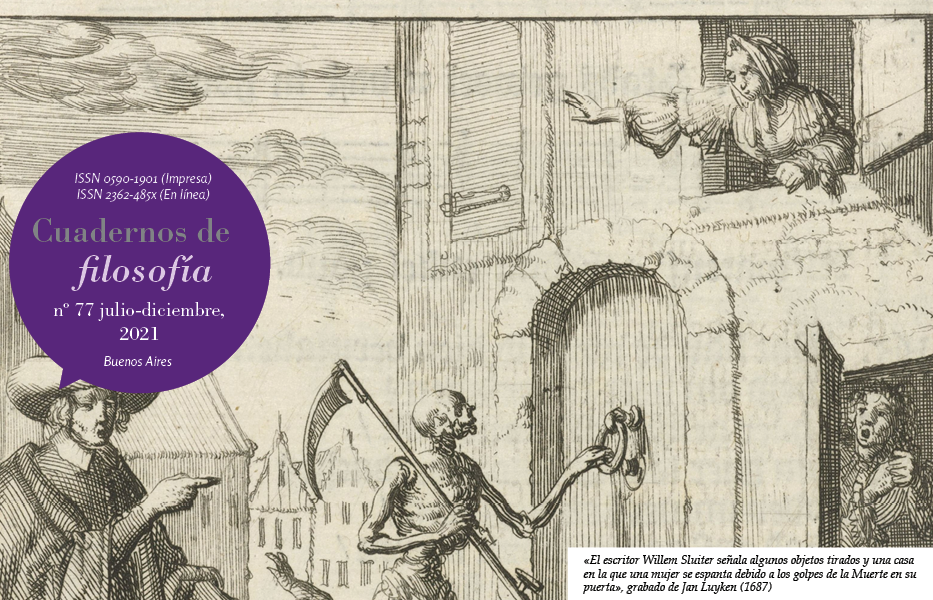Post-pandemic. Ghosts and science fiction
Abstract
In this article we propose to think about the post-pandemic, giving priority to the point of view of science fiction. Here we follow the logic that Silvia Schwarzböck chose to think about the “return of Democracy” in Argentina. Post-dictatorship, says Schwarzböck, is the continuation of dictatorship by other means: those of false life as the only horizon, and since aesthetics is the discipline that thinks rigorously in terms of untruth, it is this discipline that enables the possibility to think about what is unthinkable for philosophy. We resort to the post- as the sign of the untruth (fiction), whose horizon of possible action constructs scenarios according to the rules of fiction. Between the dire future of the apocalypses already happened and the ends of the world that do not end, the syntagm "post-pandemic" speaks of the returning time that returns us to the stasis of a dense present. It also speaks of the need to fictionalize the pandemic (or its minion, the virus) according to the rules of a speculative fable. An aesthetics and a politics.Downloads
Los autores/as que publiquen en esta revista aceptan las siguientes condiciones:
Los/as autores/as [traductores/as] conservan los derechos de autor/a y ceden a la revista el derecho de la primera publicación, con el trabajo registrado con Licencia Creative Commons Atribución-NoComercial-CompartirIgual 4.0 Internacional, que permite a terceros utilizar lo publicado siempre que mencionen la autoría del trabajo y a la primera publicación en esta revista.
Los/as autores/as pueden realizar otros acuerdos contractuales independientes y adicionales para la distribución no exclusiva de la versión del artículo publicado en esta revista (p. ej., incluirlo en un repositorio institucional o publicarlo en un libro) siempre que indiquen claramente que el trabajo se publicó por primera vez en esta revista.
Se permite y recomienda a los/as autores/as a publicar su trabajo en Internet (por ejemplo en páginas institucionales o personales).
Políticas de detección de plagio
La colaboración de los y las editores/as, autores/as y evaluadores/as de esta revista y la guía de ética de los procesos editoriales se rige por los Principios de transparencia y buena práctica en publicaciones académicas del Committee on Publication Ethics (COPE) disponible aquí.
Todos los artículos enviados a esta publicación serán supervisados mediante una búsqueda online.







